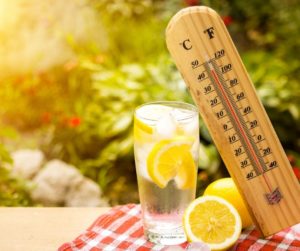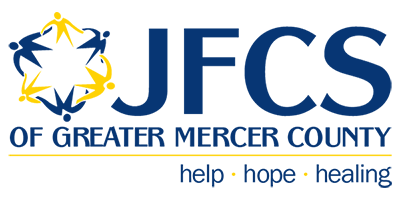With summer in full swing and the pandemic limiting the number of cool places people can retreat to, it is extra important to review the essentials of summer heat safety. These tips are good for everyone to keep in mind, but are tailored specifically for seniors whose additional needs are not always included in traditional heat safety reminders.

- Keep cool. Rest in the middle of the day when it’s hottest and do chores and yardwork in the early mornings or evenings. If you do not have air conditioning, close your blinds or curtains during the day to block excess sun from heating your home.
- Keep hydrated by drinking plenty of water, sports drinks or juices as well as eating fruits and vegetables. Don’t only drink when you feel thirsty – this means you’re already on the road to dehydration, and many seniors experience a diminished sense of thirst that can keep them from always knowing when they need a drink. Limit your alcohol and caffeine intake as well in order to avoid their dehydrating (diuretic) effects.
- Check your medications for side effects that may emerge in the summer.
- Diuretics (prescribed for conditions like glaucoma, high blood pressure, and edema) and laxatives cause you to lose fluids and become dehydrated faster.
- NSAIDs, some antibiotics and sulfonlyureas (prescribed for diabetes management) can cause rashes where your skin is exposed to the sun.
- Antipsychotics (prescribed for psychiatric management or sleep) can dull internal senses and prevent you from knowing if your body is getting too hot.
- Anticholinergics (prescribed for COPD, incontinence, gastrointestinal disorders, and allergies/asthma) can cause you to sweat less, preventing your body from cooling itself.
- Beta blockers cause slower heartbeats, which can get in the way of your body’s ability to respond to heat stress.
- The risk for heat-related illness increases with age and is even greater for those with health conditions such as heart and circulatory system problems, lung or kidney disease, infections, and those who are highly under- or overweight. Ask your doctor if you need to take any special precautions to stay safe this summer.
- Consider wearing a call button in case of emergencies. While some may find the idea uncomfortable, erring on the side of caution is a key part of summer safety. Another option is agreeing with a friend to check in with a phone call once a day.
- Know how it feels to have different heat-related illnesses and what you should do about them.
- Heat exhaustion: Occurs when your body is struggling to maintain your normal temperature because of the increased heat outside. If your body can’t release the heat faster than it accepts it, your core temperature will begin to rise. This situation is dangerous to your health and requires immediate action.
- Symptoms include dizziness/feeling faint, loss of consciousness, excessive sweating, weak heartbeat, nausea/vomiting, muscle cramps, headache, pale and cool skin, and a temperature higher than your baseline but lower than 103°.
- To treat, start by moving to a cool place and drink water slowly. When you feel well enough, take a cool (not hot or cold) shower or bath, or place cool, damp cloths on your neck, armpits, groin and forehead. Get help if your symptoms do not improve after an hour, you vomit or lose consciousness or are concerned that you will.
- Heat stroke: your body has exhausted all methods of cooling itself down, and your temperature is dangerously high. The situation is extremely dangerous and requires emergency medical treatment.
- Symptoms include dizziness/feeling faint, loss of consciousness, no sweating, rapid and strong heartbeat, nausea/vomiting, headache, skin that’s hot, red and dry, and a temperature above 103°.
- If you get heatstroke it’s unlikely you’ll be well enough to treat yourself, which is why it’s so important to pay attention to how you feel before the situation becomes dangerous. To treat someone else with heatstroke, call 911 immediately – the longer a person has heatstroke, the more likely they will not recover or will have lasting damage to their body when they do. While you wait, follow the dispatcher’s instructions, which will most likely be to bring the person to a cool place and place cool, damp cloths on their armpits, neck, groin and forehead. Do not attempt to give them anything to drink, especially if they are confused or unconscious; the person may accidentally breathe in the fluid (aspiration) which is also extremely dangerous. Medical professionals will rehydrate the person themselves using IV fluids.
- Heat exhaustion: Occurs when your body is struggling to maintain your normal temperature because of the increased heat outside. If your body can’t release the heat faster than it accepts it, your core temperature will begin to rise. This situation is dangerous to your health and requires immediate action.
Samantha Goldfarb, Intern


